Addressing the mental health needs of children, youth and families is fundamental to the future of Fort Bend County. COVID-19 has had a significant impact on our communities and we must not overlook the psychological impact on our children’s mental health.
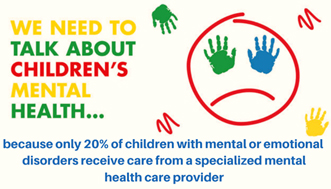
Mental Health in Children
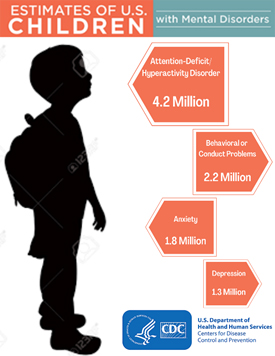
-
ADHD, behavior problems, anxiety, and depression are the most commonly diagnosed mental disorders in children.
-
Anxiety in children may present as fear or worry, but can also make them irritable and angry. Anxiety symptoms can also include trouble sleeping, as well as physical symptoms like fatigue, headaches, or stomachaches.
-
Depression in children may present as sadness, hopelessness or anger and irritability. Depression symptoms can include not wanting to do fun things, changes in eating, sleeping patterns, or energy, trouble with concentration, feeling worthless, useless, or guilty, showing self-injury and self-destructive behavior.
-
It is important to recognize the symptoms of anxiety and depression in children, so they can seek treatment with a health care provider.
Childhood Trauma
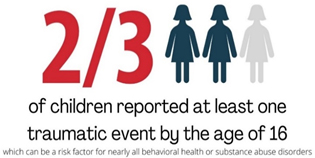
-
Traumatic events can include a death, divorce, a pandemic, natural disasters, exposure to violence, or bullying.
-
Understanding a child’s trauma and making an effort to help them heal from it can significantly reduce the effects of possible behavioral disorders that could result from the trauma.
Traumatic stress can also lead to increased use of health and mental health services and increased involvement with the child welfare and juvenile justice systems.
Resiliency in Children
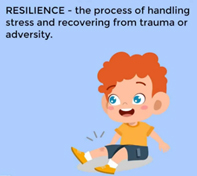
-
Resilience is important to development during childhood because it allows children to deal with hardships in life without it being overwhelming for them.
-
Providing children healthy parent-child relationships, safe and stable homes, healthy foods, education, and support systems is key to their emotional and overall wellbeing.
-
Playing supports and enhances the development of resilience
-
To help foster resilience, parents can play, show warmth, listen, reassure, and be consistent with their children.
It is important to support children during the pandemic by…

-
Trying to keep up with regular routines.
-
Reassuring them that they are safe and letting them know that it is okay to feel upset.
-
Addressing fears and concerns in a developmentally appropriate manner.
-
Sharing with them how you deal with stress.
-
Spending time with your child in meaningful activities, reading together, exercising, and playing games.
-
Limiting exposure to social media.
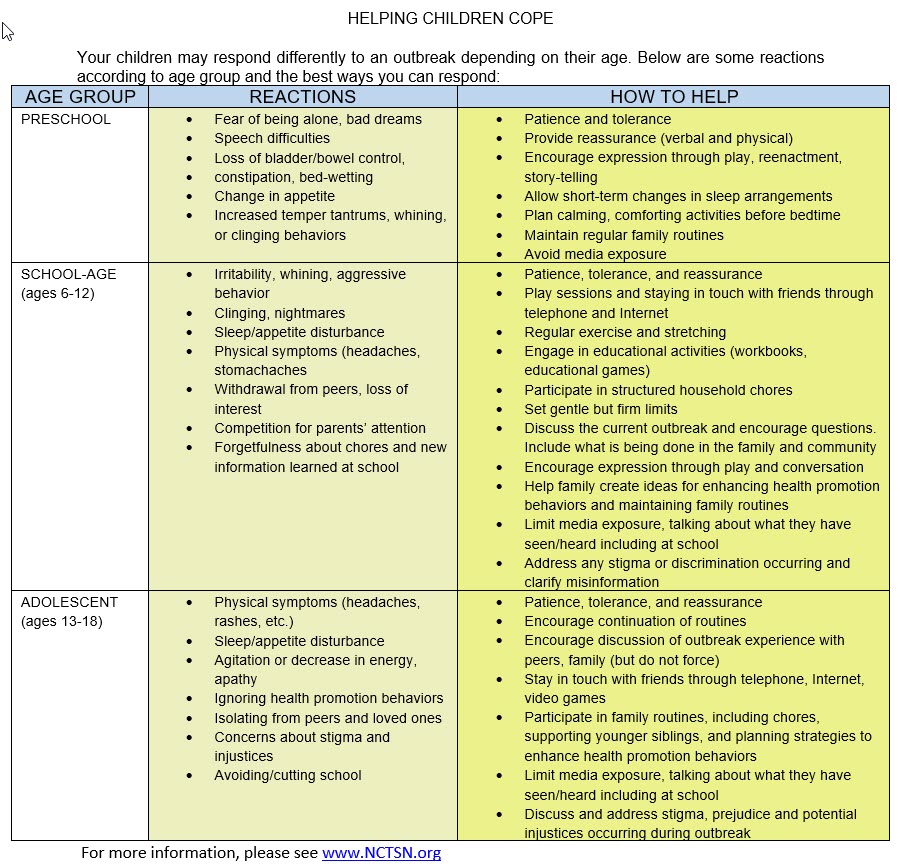
Helpful Links on Children’s Mental Health:
